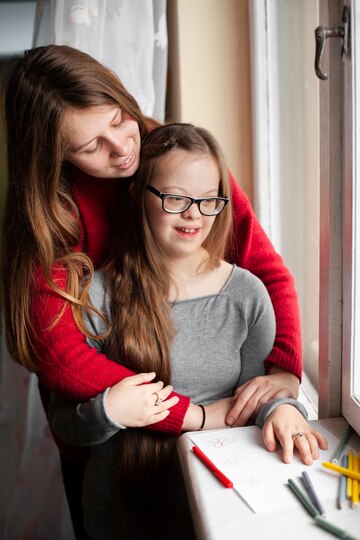Introduction: Parenting a Child with a Disability
Parenting is a journey full of love, challenges, and surprises. But when you’re raising a child with a disability, the path can be even more complex. While there are countless resources about specific disabilities, some aspects of raising a child with special needs remain less talked about. In this post, we’ll explore some of the untold truths of parenting a child with a disability, focusing on areas that often go unnoticed in mainstream discussions
Understanding Emotional Labor
One of the most overlooked aspects of raising a child with a disability is the emotional labor parents endure. While physical care, medical appointments, and education take center stage, the emotional strain is often unspoken. The constant worry about your child’s future, their social acceptance, and their mental well-being can be emotionally exhausting.
Unique Angle: Few discussions focus on the long-term emotional toll on parents, especially the unspoken fears and anxieties about their child’s independence as they grow older.
Dealing with Social Isolation
Parents of children with disabilities often face social isolation. Playdates, school events, and even casual outings can feel overwhelming when accessibility or understanding isn’t guaranteed. Many parents find themselves retreating from social gatherings due to the unique challenges their child faces.
Unique Angle: Many parenting resources talk about the child’s social isolation but not the parent’s. The loneliness of not having peers who fully understand your experiences can lead to feelings of isolation.
Advocacy Burnout
Parents of children with disabilities often become their child’s biggest advocates—fighting for accessible education, medical care, and basic rights. However, the constant need to advocate can lead to burnout. Many parents find themselves exhausted from navigating systems that aren’t built with their child in mind.
Unique Angle: Advocacy burnout isn’t a widely discussed topic but is a major issue for parents, especially when they are fighting battles at school, in medical systems, or in everyday environments.
Managing Sibling Dynamics
While much attention is given to the child with a disability, the experiences of their siblings are often neglected. Siblings may struggle with feelings of jealousy, guilt, or frustration, especially when they see their parents devoting extra time and energy to their brother or sister. Balancing the needs of all children in the family is crucial but often difficult.
Unique Angle: Many blogs touch on sibling relationships, but few delve into the complexities of balancing attention between a child with a disability and their siblings.
The Financial Strain No One Talks About
Caring for a child with a disability can bring unexpected financial burdens. From specialized equipment to frequent medical appointments, the costs can be overwhelming. Many parents are forced to make difficult choices about their careers, sometimes becoming full-time caregivers. This financial pressure can be stressful, especially when it feels like no one else is discussing it.
Unique Angle: Financial discussions around disability tend to focus on medical expenses, but the broader financial strain—lost income, career sacrifices, and hidden costs—is rarely talked about.
Self-care for Parents: More Than Just a Buzzword
“Take care of yourself!” is often the advice given to parents, but for parents of children with disabilities, self-care can feel like an impossible goal. Finding time for self-care when you’re constantly managing appointments, therapies, and day-to-day care requires planning and creativity. Self-care in this context isn’t about luxury—it’s about survival.
Unique Angle: Unlike generic advice, focusing on practical, realistic ways parents of disabled children can integrate self-care into their lives can be a fresh perspective.
How Communities Can Help
It’s important to end on a hopeful note. Parenting a child with a disability is full of challenges, but community support can make all the difference. Inclusive playgrounds, support groups, and online forums can provide a lifeline for parents. Understanding that you don’t have to do this alone is crucial, and there are people out there who want to help.
Unique Angle: Highlighting specific community support options, both online and offline, provides actionable advice that many parents may not have considered.
Conclusion
Parenting a child with a disability is full of joys and challenges that are rarely discussed in the mainstream. From emotional labor and sibling dynamics to financial strain and advocacy burnout, there are countless untold stories from parents. By sharing these experiences and connecting with supportive communities, parents can find the strength and resources they need to navigate this journey.
f”Explore the untold challenges of parenting a child with a disability. From emotional labor to financial strain, discover unique insights and practical tips.”


1 thought on “Parenting a Child with a Disability: The Untold Challenges and Joys”